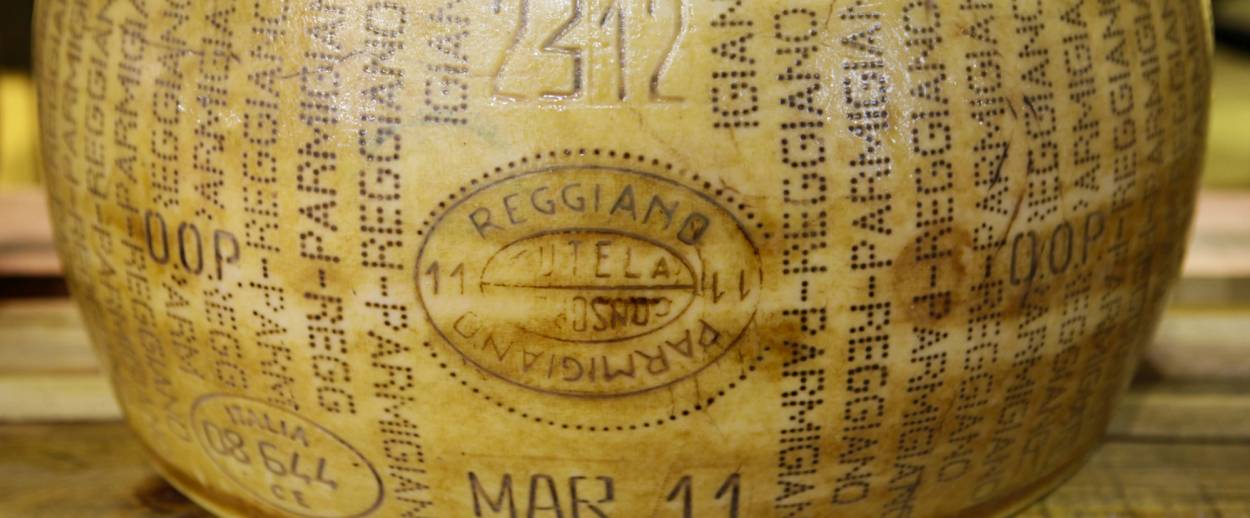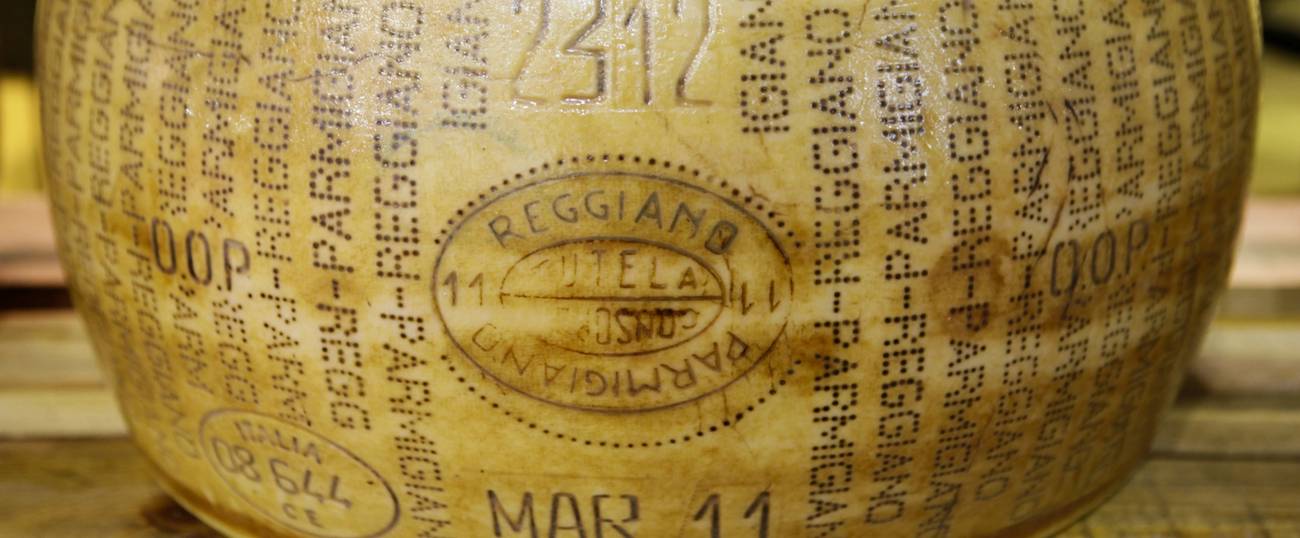The King of Cheese Makes a Kosher Comeback
A number of companies are working to produce authentic Parmigiano-Reggiano that meets kashrut standards




Earlier this month, Bloomberg Business published an article that described the “booming” demand for kosher Parmigiano-Reggiano cheese, which is currently unavailable in kosher form. A number of companies, including Bertinelli, Lavazza (yep, the coffee producers), and Ferrero (the manufacturers of Nutella) are reportedly working to produce an authentic and kosher wheel by October of this year, and they have obtained the certification to do so.
But the story of authentic Parmigiano-Reggiano cheese, which hasn’t been available in kosher form since 2010, goes way back. In 2012, the Forward reported:
Today you can’t find a single piece of kosher Parmigiano-Reggiano anywhere in the world…
…The last kosher Parmigiano operation ended several years ago in Reggio Emilio, a small town between Parma and Bologna. “My family started the business at the beginning of last century,” Irma Fanticini, 89, told me recently. “My son Piero represents the third generation of professional cheese makers. He is named after his grandfather, who started the factory in 1907. Even before this, his family had been producing homemade cheese for centuries.”
Fanticini explained: “We decided to make Parmigiano for Jews. Once in a while a rabbi came with a special rennet, and he controlled everything.” But when Irma’s son retired a couple of years ago, the Fanticinis sold their cheese factory, and the new owners stopped making kosher Parmigiano.
And since Fanticini stopped producing Parmigiano-Reggiano cheese, Jews who observe the laws of kashrut have “been forced to turn to lesser-quality grated cheese,” Haaretz reported, which, of course, is not authentic.
…For Parmigiano to be authentic, it must carry a Protected Designation of Origin certification. The certification, like the one used to protect Champagne, guarantees that the cheese is produced exclusively in the region of northern Italy where it was first developed. Here, cows are fed on locally grown hay, which infuses the milk with a unique flavor. And cheese makers continue to use the same methods to make and age the cheese as their forbears have for centuries.
But what makes Parmigiano-Reggiano—or, Il re dei formaggi (“the king of cheeses”)—unkosher in the first place?
The crucial issue in the production of kosher Parmigiano-Reggiano lies in the rennet—a substance necessary to turn the milk into a hard cheese—which must be of animal origin. Traditional rennet is produced from the enzymes of slaughtered ruminant mammals. Although in modern times vegetarian rennet substitutes have been applied to cheese making, they cannot be used for Parmigiano-Reggiano.
Since Italy’s Jewish population amounts to less than 50,000 individuals and only a small minority of them keeps kosher, there are few kosher slaughterhouses in the country, which makes the production of kosher Parmigiano-Reggiano complex and its market small.
Bloomberg reported that Bertinelli is trying to earn kosher certification from OK and the Orthodox Union. And once the company is able to produce kosher, authentic Parmigiano-Reggiano cheese, it has its sights set on the reported $12.5 billion kosher food industry at-large, desiring to produce frozen ravioli and gnocchi meals, as well.
Jonathan Zalman is a writer and teacher based in Brooklyn.